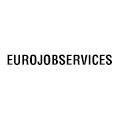Similar JobsPowered by Merojob AI

Deadline: Dec 24, 2025

Deadline: Dec 24, 2025

Deadline: Jan 01, 2026

Deadline: Dec 24, 2025

Deadline: Jan 02, 2026

NGO / INGO / Development Projects
Full Time
|Background
Before the start of Suaahara, an evaluation was planned and the International Food Policy Research Institute (IFPRI) was contracted to design the impact evaluation and lead the baseline survey of the impact evaluation in the summer of 2012. A Nepali survey firm was responsible for the baseline survey data collection and management. Additionally, in 2014 a mixed-methods process evaluation (de facto Suaahara I endline and Suaahara II) was carried out by an externally contracted principal investigator to lead the study design and locally contracted firms to carry out the quantitative and qualitative components.
The endline for the main quasi-experimental impact evaluation of Suaahara was planned to take place in the summer of 2020, but due to COVID-19 was postponed until the summer of 2021. This evaluation is to estimate the effect of Suaahara interventions on household behaviors and nutritional status, as well as on knowledge and skills among health workers and FCHVs. The primary research questions are: What is Suaahara's impact on maternal and child nutritional status and dietary diversity? Secondary questions include: 1) What is Suaahara's impact on maternal and child nutrition, health and WASH behaviors and knowledge? and 2) What is Suaahara's impact in reducing equity gaps in nutritional status, dietary diversity, and maternal and child nutrition, health and WASH behaviors and knowledge? Additionally, a sub-study will be carried out in a few areas to assess the effect of the homestead food production intervention on food security, dietary diversity, agricultural practices and production, and other outcomes. To complement this quantitative study, a qualitative evaluation focusing on the effect of Suaahara at the FLW/community level and policy levels (federal, provincial/district and local) is also planned for the summer of 2022.
Qualifications/Evaluation Criteria
The top three candidates will be shortlisted by the technical evaluation committee. Based on a review of the application materials submitted and estimated costs, the evaluation committee will make a best value trade-off evaluation of the technical quality and the consultant’s daily rate, associated travel and incidentals costs to identify the successful candidate.
This consultancy will report to the Suaahara II Sr. Technical Advisor.
For the detailed TOR please CLICK HERE
Applying Procedure
Click on Login to Apply to get the email address / external link to apply.
Note: You need to be a registered jobseeker to view the applying email address / external link.
Apply Before: Nov 12, 2020
About the organization
Helen Keller International is a non-profit organization with a vision of a world where no one is deprived of the opportunity to live a healthy life and reach their true potential. Co-founded in 1915 by Helen Keller and George Kessler, our work includes support to grow and eat nutritious food, stave off malnutrition, build strong immune systems, access life-saving medical treatments, and prevent and treat blindness and vision loss for over 80 million people in 20 countries across Africa, Asia, Europe, and the United States.
Helen Keller has been operating in Nepal since 1988, initially focusing on eye care and Vitamin A supplementation, but has since expanded to include maternal and child health and nutrition, nutrition behavior change, and nutrition-sensitive agriculture, among other sectors. We aim to tackle malnutrition and food insecurity in vulnerable communities by building local capacity and ownership; leveraging on strong monitoring, evaluation, and research systems; and advocating for national policies.
In response to the changing development landscape across the globe, Helen Keller has undergone a significant transformation. Formerly, the organization’s strategic focus was divided into three areas: nutrition, health, and neglected tropical diseases. We have now a two-pillar approach that prioritizes the food system and health systems and aims to create more impactful and resilient programs.
The organization is a pioneer in implementing integrated nutrition programs such as Suaahara I & II, Action Against Malnutrition through Agriculture (AAMA), and Sustainable Action for Resilience and Food Security (SABAL).